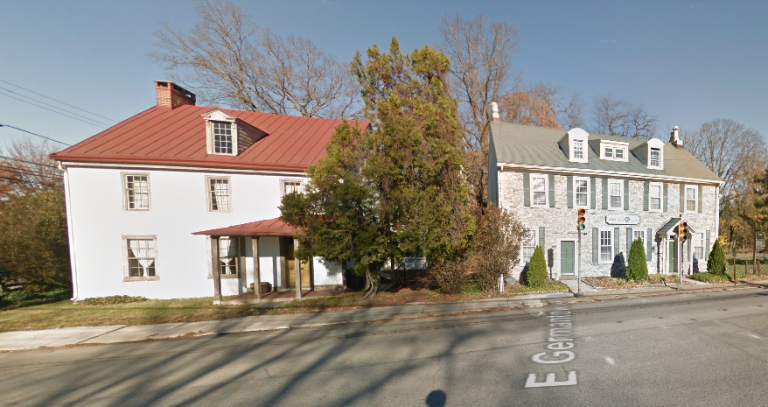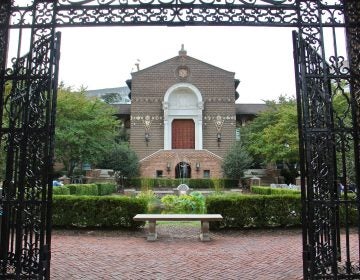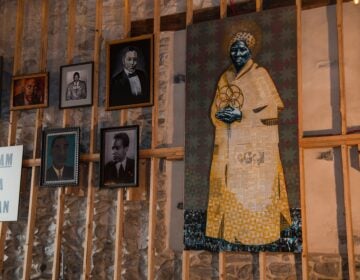Anonymous gift to help preserve Abolition Hall in Whitemarsh
A $3.95 million agreement will allow the township and Whitemarsh Art Center to purchase the Underground Railroad stop.

Abolition Hall in Plymouth Meeting, Pennsylvania. (Google Maps)
With the help of an anonymous donor, historic Abolition Hall in Montgomery County is here to stay. The Whitemarsh Board of Supervisors approved a $3.95 million agreement that would allow the township and Whitemarsh Art Center to purchase the 10.45-acre property in Plymouth Meeting.
“I’m looking forward to continued collaboration among our residents — not just our residents, but our local community and our national community, because this history is national history. It’s part of all of our histories, and not just this geographic region,” said Laura Boyle Nester, chair of the Board of Supervisors.
Funding also will come from the township’s Open Space Earned Income Tax.
Abolition Hall is on the National Register of Historic Places because it served as a major stop on the Underground Railroad and as a meeting place for prominent abolitionists, Frederick Douglass among them. Other buildings on the property, such as the Hovenden House, Barn, and Main House, are also nationally recognized.
Despite their historic designation, the structures were at risk of being lost to development in recent years because the township was unable to reach an agreement with the owners of the property.
Hovnanian Homes had plans to buy the property from the Corson family, which has owned the land since 1856, and use it to build 67 townhouses. After local opposition, the company withdrew its application for the project.
“And as soon as the township was notified about that, we reached out to the [Corson] family again, stating our interest. Over the course of the past year, there were conversations with the family’s attorney and a private donor, who showed interest in helping to support the preservation of not only the buildings, but also the surrounding land. And that’s what brought us to where we are today,” Boyle Nester said.
Whitemarsh Art Center will likely move to the site after all the plans are finalized and money changes hands, plus a 45-day inspection period.
Prior to the pandemic, the art center was looking for a place to call home, and it had even received a grant and begun fundraising. Those plans took a backseat to the coronavirus.
Now, they’ve been revitalized.
“The township approached us, because they felt that our mission fit what they wanted to build and see there,” said Daniel Zuena, board president of the Whitemarsh Art Center.
Once all the details are ironed out, Zuena said, there will be town halls and community conversations on how to best use the property to further the goals of lifting up history, education, preservation, and art.
Ultimately, he said, there is a great value in preserving the history of abolition in the region. Boyle Nester said that after seeing the process come full circle, she was choked up to be a part of finally saving Abolition Hall from development, especially after a year of protests and a racial reckoning over this country’s history.
“It’s so important to preserve this history. And to have this happen in Whitemarsh — in our area — is so meaningful,” she said.

Get daily updates from WHYY News!
WHYY is your source for fact-based, in-depth journalism and information. As a nonprofit organization, we rely on financial support from readers like you. Please give today.







